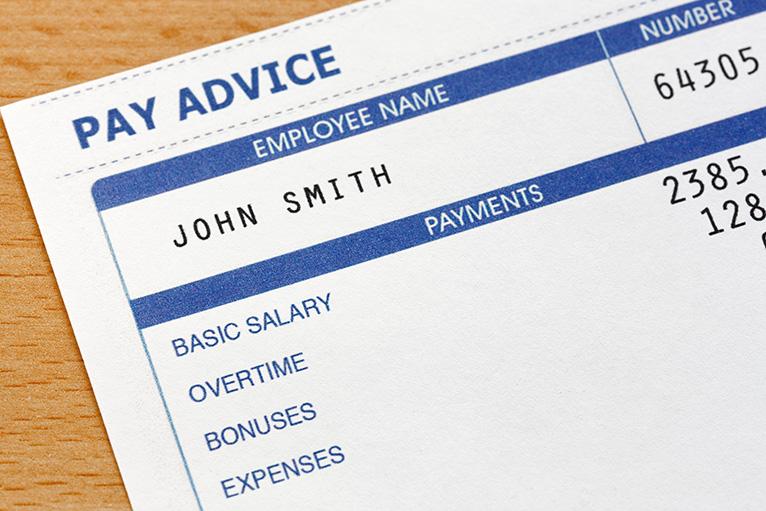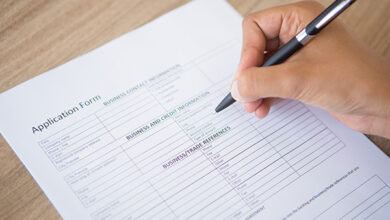Important admin deadlines for small businesses
From tax to payroll, there are plenty of important admin deadlines that you need to be aware of as a small business owner. This is especially important for certain financial responsibilities, as you may have to pay fines or penalties if you miss any deadlines!
Avoid any penalties due to missed deadlines, by adding the below key business dates to your diary.
Note: All deadlines listed are correct at the time of writing (9th August 2021).
Key dates for small businesses

Self Assessment tax bill
Self Assessment is the system used by HM Revenue and Customs (HMRC) to collect Income Tax from business owners. You must report tax through a tax return if, in the last tax year (6th April to 5th April), you earned more than £1,000 as a sole trader/self-employed person, before taking off any money for tax relief, or if you became a partner in a business partnership.
- 31st January: File your Self Assessment tax return online.
From April 2021, the government’s Making Tax Digital for VAT service came into place. It requires VAT-registered tradespeople earning over £85,000 (and under £85,000 from April 2022) to submit their tax returns online rather than using a paper form.
File your Self Assessment tax return on Gov.uk.
- 31st January: Pay part of your Self Assessment tax bill.
If you still have any remaining balance on your tax bill for the previous tax year, you’ll need to pay it by midnight on 31st January. This is called a ‘balancing payment’.
If you make advance payments towards your Self Assessment tax bill, you’ll also need to make your first ‘payment on account’ by 31st January. This payment is worth half of your tax bill from the previous year.
Pay your Self Assessment tax bill on Gov.uk.
- 31st July: Pay another part of your Self Assessment tax bill.
Make your second ‘payment on account’ by midnight on 31st July (if you make advance payments towards your Self Assessment tax bill). This payment is also worth half of your tax bill from the previous year.
- 5th October: Register for Self Assessment.
Anyone who did not send a tax return last year, and in the last tax year (6th April to 5th April) has:
You need to register by 5th Oct following the end of the tax year your business started in (so when your business is in its second tax year).
Register for Self-Assessment on Gov.uk.
Don’t leave registering until the last minute – HMRC recommends leaving up to 20 working days to complete the registration process.
- 31st October: File your paper Self Assessment tax return.
If HMRC has told you that you can’t file an online tax return, then you’ll need to submit your paper tax return by midnight on 31st October after each tax year.
Download the SA100 tax return form on Gov.uk.
- 30th December: File your Self Assessment tax bill if you want to pay through your tax code.
If you’d prefer to pay your Self Assessment tax bill through 12 equal instalments through your PAYE tax code, then you’ll need to file your Self Assessment tax bill by 30th December. You can only do this if you:
- Owe less than £3,000 on your Self Assessment tax bill.
- You already pay tax through PAYE.
- You file your online tax return by 30th December or your paper tax return by 31st October.
Read more about how paying your Self Assessment tax bill through your tax code on Gov.uk.
Value Added Tax (VAT)

You need to register for VAT if your business turnover exceeds £85,000, or you know it will.
- 4 times a year: Submit a VAT return and payment to HMRC.
You need to do this after each accounting period (which lasts 3 months). You have one calendar month and 7 days after each accounting period to do so.
Your VAT return should cover:
- Your total sales and purchases.
- The amount of VAT you owe.
- The amount of VAT you can reclaim.
- What your VAT refund from HRMC is.
In most cases, you’ll also need to pay your VAT bill on the day it’s due. Check your VAT return and payment deadlines on your VAT online account. Pay your VAT bill on Gov.uk.
- Once a year: Submit your VAT return and make an advance payment if you’re part of the VAT Annual Accounting Scheme.
If you’re part of the VAT Annual Accounting Scheme, then you won’t need to submit your VAT return and payment 4 times a year. Instead, you’ll only do so after a 12 month accounting period. Your VAT return is due 2 months after the end of your accounting period.
You’ll also make advance payments towards your VAT bill if you’re part of the Annual Accounting Scheme, which are due either:
- Monthly: 10% of your estimated VAT bill is due at the end of the 4th, 5th, 6th, 7th, 8th, 9th, 10th, 11th and 12th months in your accounting period.
- Quarterly: 25% of your estimated VAT bill is due at the end of the 4th, 7th and 10th months in your accounting period.
- Final payment: This is the difference between your advance payments and your actual VAT bill (once it’s confirmed on your VAT return). It’s due within 2 months of the 12th month in your accounting period.
You can check your VAT return and payment deadlines on your VAT online account, and pay your VAT bill on Gov.uk.
Payroll and employee expenses

- From 6th April: Update your employee payroll records.
You’ll need to update your records for all employees that you pay in the tax year, and any employees that worked for you in the current tax year even if they’ve left. This includes:
- Preparing a payroll record.
- Choosing the correct tax code.
- Entering their tax code into your payroll software.
- From 6th April: Update your payroll software.
so that it uses the most up-to-date Income Tax, National Insurance and student loan repayment rates and thresholds. You might have to update it earlier if your software provider asks you to.
If you have less than 10 employees, you can use HMRC’s free payroll software called Basic PAYE Tools.
- 31st May: Give all employees a P60.
that are on your payroll and working for you on 5th April (the last day of the tax year) a P60 to summarise their total pay and deductions for the previous tax year.
- 6th July: Report all employee expenses and benefits to HMRC. Use your payroll software to do this if it has this feature.
Find out more on Gov.uk.
- 22nd July: Pay all Class 1A National Insurance contributions on work benefits that you give to your employees and/or any payments over £30,000 that you make to them once they stop working for you, such as redundancy payments, if you’ve not already paid Class 1 National Insurance on them. You’ll need to pay by 19th July if you’re paying by post.
- By your employees’ last payday of the year: Send your final payroll report of the year, called a Full Payment Submission (FPS) before the last payday of the tax year, which ends on 5th April.
You can do this by entering ‘Yes’ in the ‘Final submission for year’ field in your payroll software, if it offers this option. Find out more about sending your FPS on Gov.uk.
Key marketing dates

Awareness days give you the opportunity to engage with potential customers on a topic that’s relevant to your trade. This helps to spread awareness about you. The specific topic of the awareness day usually trends on social media on that day. So, it’s the perfect marketing opportunity to create special content to boost your company’s online presence.
Some awareness days/events that you should keep an eye out for as a tradesperson include:
- National Apprenticeship Week: 8th – 14th February.
- World Plumbing Day: 11th March.
- World Earth Day: 22nd April.
- National Gardening Week: 26th April – 2nd May.
- Gas Safety Week: 14th – 20th September.
- Electrical Fire Safety Week: 23rd – 29th November.



